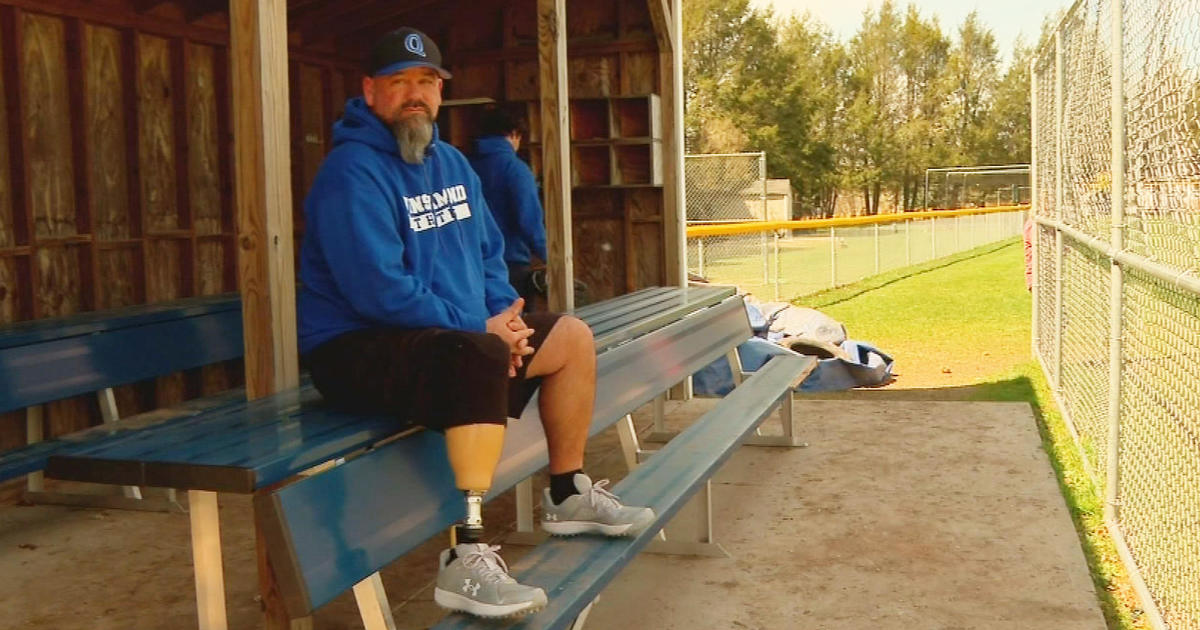Where's All The Important Stuff?
BOSTON (CBS) - The dreaded CRS Syndrome. This disease begins around age 40 and it does get worse with age.
Where's All The Important Stuff?
You can easily self-diagnose this disease. You walk into a room and you stand there. You utter the words "What am I here after?" You have CRS. You Can't Remember Stuff!
This happens because we are on overload and our brains have begun to shrink. Just think what it is like if you are 80! So a gift you can give mom is to help her sort through all of the stuff she has been saving for years and help get it organized. Once organized, set up a filing system that she can easily access.
If you can get her stuff organized, her life and probably yours will be so much easier. Every mom I know has stuff she has been saving for years.
As you start, remember this is her stuff and if she has saved it, she perceives there is a value.
This is a process. It will take more than a Sunday afternoon. Don't just dump stuff! Spend the time to evaluate what you do find. Make three piles. Pile 1 gets shredded or tossed, the second is a "maybe" pile and the third is "we need to keep this in a safe place" pile.
Set up a filing system that mom can access easily and print out any labels in large block letters so she can read them. Now start to collect the stuff from the various places that mom has stashed them.
Does she have a safety deposit box? Ask if you can go with her and take inventory of the contents?
Begin to make lists of the important stuff in her life; people, accounts, an inventory of the important papers.
Helping her get organized will ease some of her stress and will help you especially if you become more involved with her finances.
Please check our website here at CBS for much more information.
One more thing: Start making lists, lots of lists. Make sure you leave a copy for mom and you should have a copy as well. Here's a start:
- Professional/Personal directory – basically her data base
- Social Security number
- Investments with account numbers
- Pin numbers
- Inventory of the safety deposit box
- Important papers and where they can be located such as birth certificates, marriage license, deeds, titles to the cars
- Insurance policies
- Regular monthly bills such as the telephone, electric, gas, rent.
- Credit card numbers and the balances if any
- Tax returns for the last 6 years
- Estate planning documents
- Prescriptions she is taking and why; check for drug interactions
- Inventory of the home's contents
Just opening the mail and organizing bills for an older person can become overwhelming. If they live nearby, ask them if they would like you to come by and help with the bill paying. They will sign the checks but you will balance the checkbook and take care of the paperwork for them. Emphasize that they are still in control. You are just the bookkeeper. If they live far away, consider hiring someone to help them.
AARP's magazine published a list of essential documents that we all should have in regard to our personal health history. They included:
- Emergency contacts, including phone numbers and email addresses
- Physician contacts, including specialists and dentists
- Health insurance information
- Health Care Proxy
- Organ-donor authorization, if any
- Current medications and dosages
- Significant illnesses and surgeries, with dates
- Immunizations and their dates
- Allergies or other sensitivities
- Results from most recent physical
- Test results, eye, and dental records
- Family health history
- Opinions of specialists
- Correspondence with providers
.........................
On Saturday May 17th Dee will be the keynote speaker at The Money Conference which is a FREE one-day event presented by The Office of Massachusetts State Treasury and the Massachusetts Financial Literacy Trust Fund, in conjunction with local cities and community partners to help households build their financial knowledge and improve their financial behavior through quality financial education.
The Money Conference: Financial Empowerment for Individuals & Families
Saturday May 17, 2014
8:30 am - 3:00 pm
Everett High School
100 Elm Street
Everett, MA 02149
Questions? Contact Sheila O'Loughlin at (617) 367-6900.
Do you feel your need for financial education and empowerment is urgent? You are not alone! Americans are saving less, spending more and carrying credit card debt over from month-to-month, suggesting that the painful financial lessons of the recent past may quickly be forgotten.



